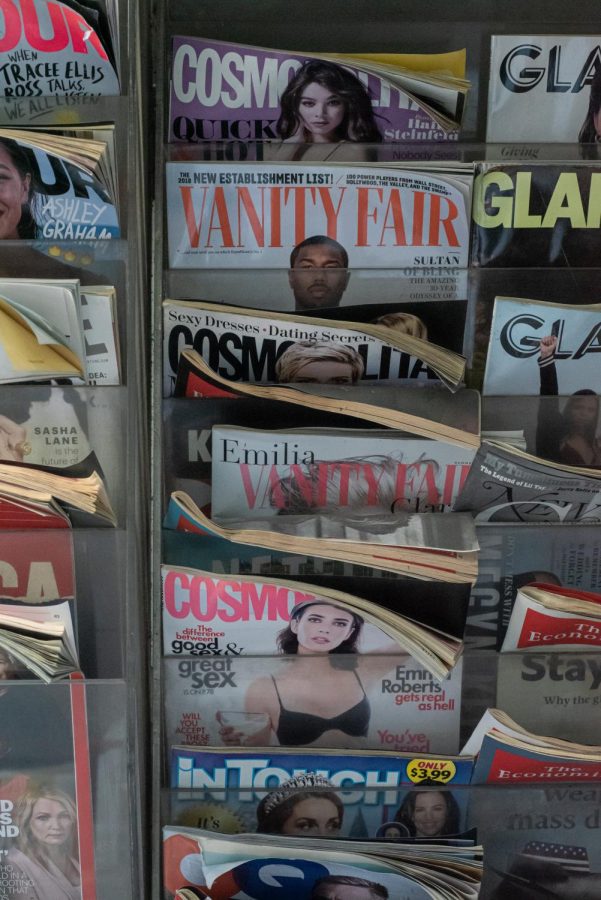Many members of Generation Z remember walking through the aisles of a grocery store as a kid and noticing the obscene titles of the tabloid magazines lined on the shelves. They featured headlines such as “Extreme diets: How Lindsay Lohan got skinny” and “50 best and worst beach bodies.”
Celebrities ranging from Lady Gaga to Selena Gomez have been subject to fat-shaming and deeply criticized for experiencing the normal functions of a healthy body. Other criticisms comment on personal issues of celebrities, for example various physical symptoms of eating disorders. This often occurred in copies of Now magazine, which consistently published headlines featuring women’s weight, age and lifestyles lining their neon, hap-hazard, front covers.
Senior leader of Girls Learn International (GLI), Aayusha Adhikari, commented on the implications of these articles. “These celebrities have large fan followings who look up to them so if celebrities are held to a hard-to-reach standard then the fans will have body issues [as] they will feel the need to look like [them],” she stated.
And while we often do not see tabloids like these in check-out aisles anymore, there is a place where they have reappeared: social media–primarily Snapchat, where news sources such as the Daily Mail berate the bodies of celebrities in a similar manner to tabloid magazines.
As of 2020, 48 percent of American Internet users ages 15 to 25 use Snapchat on a daily basis.. This raises the question: how is the ruthless content on this app affecting the young and impressionable?
These articles from sources like Daily Mail, Entertainment News and Pop Buzz are promoted on the opening page of Snapchat, directly in the eyes of any user, whether or not that user intends to browse these articles. By doing so, they welcome misogynistic ideas into the minds of the many young users of the app. More adversely, they contribute to the development of insecurity and low self-esteem.
Senior Lauren McGovern has noticed the influx of these berating articles on social media sites. “Young people, especially young girls, often become insecure because of these cheap, money-grabbing articles. They capitalize on sexism and female insecurities.” she explained.
This insight brings up the issue of why these companies continue to create articles like these. The truth is, instilling insecurities into young girls has been a source of capital for the beauty industry for decades. For example, with articles commenting on things like body hair, women will continue to buy into the beauty standard created in these articles and provide profit to beauty companies that sell methods of hair removal.
While the beauty industry grows exponentially as a multi-billion dollar industry, it continues to manufacture socialized insecurities through articles that comment on the pickiest of details, such as fine lines on the faces of celebrities.
Not only does this develop lifelong self-esteem issues in women, but it also ties women to the idea of physical perfection before leaving the house and a necessity to visually please men. These ideas have been outdated for far too long, and yet they still cling to society like the insecurities they produce.
Society is long overdue for a change in its expectations for women. No one should be wondering who the “Top 10 celebrities that can’t lose the baby weight” are enough to produce an article about it in 2021–or ever, for that matter. And although the claws of capitalism grasp these negative views tightly one can only hope that society will begin to truly appreciate all bodies rather than shaming the majority.









